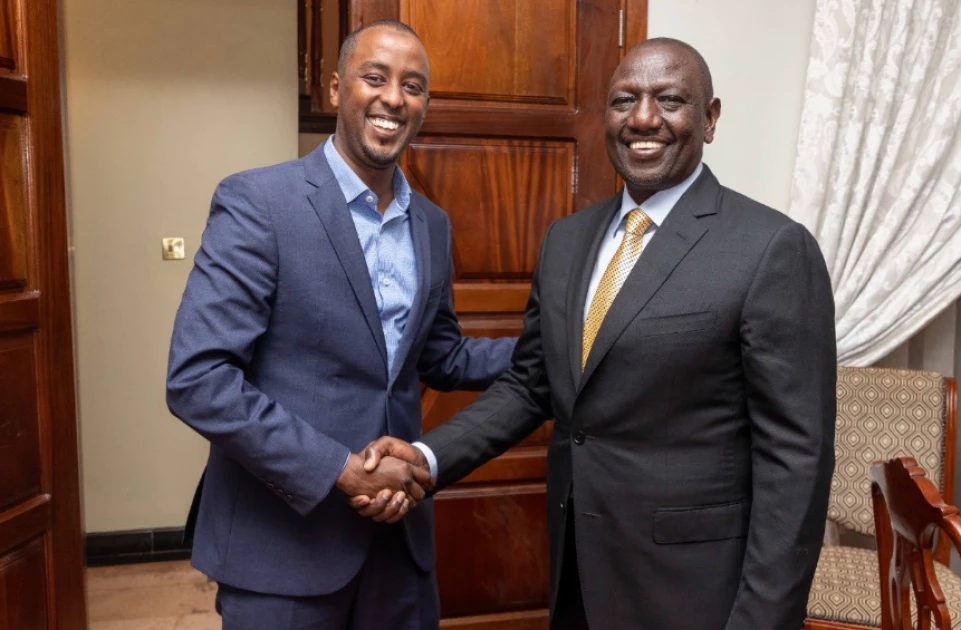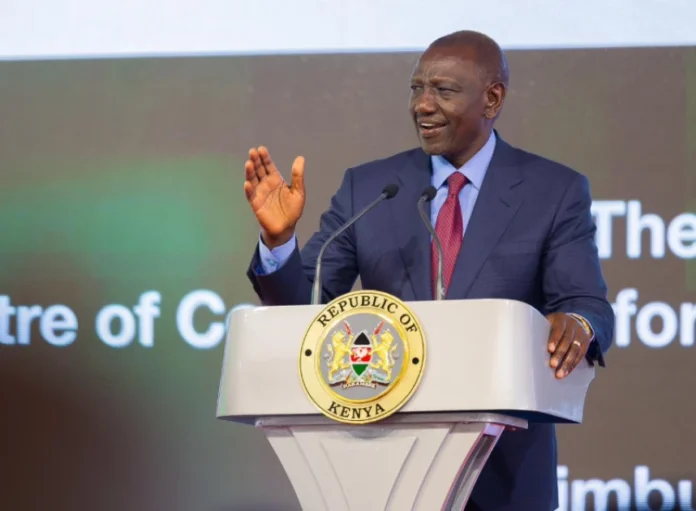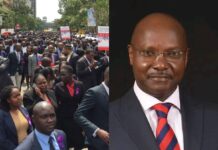The Kenyan government has issued a strongly-worded rebuttal to a recent Economist article that alleged President William Ruto is leading the country “to a dangerous place,” calling the piece a mischaracterization of the country’s current trajectory and the President’s leadership.
In an official statement penned by State House Spokesperson Hussein Mohamed, the government asserted that President Ruto is instead making bold, often politically unpopular reforms that are stabilising the economy, creating jobs, and promoting inclusive growth.

State House Spokesperson Hussein Mohamed with President William Ruto. Photo/ Courtesy
“The claim that Kenya has enjoyed decades of stability without acknowledging the remarkable macroeconomic gains achieved under Ruto is either disingenuous or a deliberate distortion,” the statement read.
Citing independent data, Mohamed pointed to Kenya’s 5% average GDP growth since Ruto’s August 2022 election, outperforming global and regional benchmarks. The shilling has appreciated nearly 20% against the dollar, inflation has plummeted to 3.8%, and forex reserves now stand at $11.8 billion, doubling import cover from 2.5 to 5 months.
The government also highlighted a range of sectoral gains, including a 50% increase in food production, historic earnings for coffee and tea farmers, and over 150,000 affordable housing units underway across 42 counties, creating more than 320,000 jobs.
Ruto’s flagship Hustler Fund has provided over 25 million Kenyans with access to credit, previously unavailable to many. Additionally, the Social Health Authority (SHA), launched in 2024, now serves over 24 million Kenyans with free and insured healthcare.
Mohamed defended Ruto’s approach to job creation, pointing to new opportunities through housing programmes, environmental initiatives, and international labour placement that has seen over 400,000 Kenyans working abroad. Nairobi has also become a magnet for global firms, including Microsoft, Apple, BUPA Global, and Lloyd’s.
In response to The Economist’s mention of Gen Z protests, the statement acknowledged the tragic death of Albert Ojwang and confirmed that investigations and prosecutions are ongoing. Mohamed emphasised the government’s commitment to upholding constitutional rights, while also calling out instances of protest-related violence.
“Kenya is a democracy, and peaceful dissent is a protected right,” he said, “but that right must not come at the cost of others’ safety.”
Addressing The Economist’s claim that Ruto’s image is “tainted,” Mohamed questioned the basis of such an assessment and defended the democratic process.
“Ultimately, it is not for foreign publications to decide whether a president deserves re-election. That decision lies with the Kenyan people.”
The response concluded by reaffirming the administration’s commitment to economic reform, inclusive development, and democratic governance, insisting that Ruto’s leadership reflects not recklessness, but the courage to make hard decisions in challenging times.
Written By Rodney Mbua


















